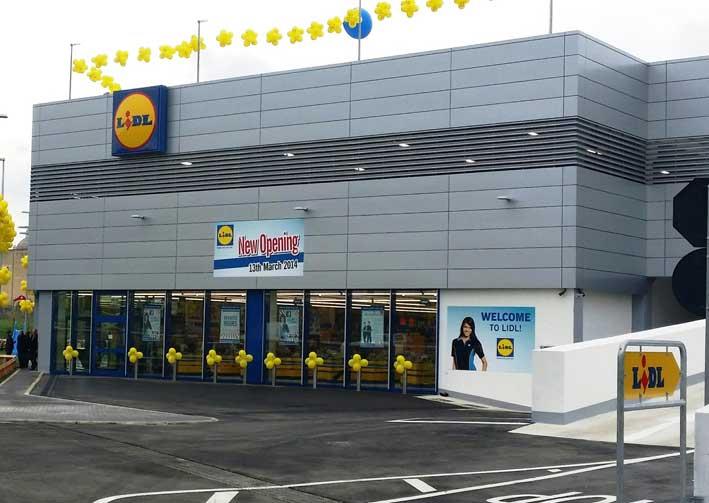The granting of a 10,000 square metre warehousing facility on public land in Ħal Far to giant food chain Lidl by Malta Enterprise has raised more eyebrows following a detailed report last week in The Malta Independent on Sunday.
Further research on Lidl’s operations in Europe shows just how illogical it is to grant public land and possibly further tax breaks to the Lidl group, which operates seven supermarkets in Malta.
The Malta Independent on Sunday requested that Malta Enterprise publishes the agreement reached with Lidl for the Hal Far regional hub, however neither Malta Enterprise nor the Ministry for the Economy were forthcoming with any replies, and questions sent to Malta Enterprise executive chairman Mario Galea remained unanswered.
Following contacts made in Italy, where Lidl has eight regional hubs similar to the one they will be opening in Ħal Far, The Malta Independent on Sunday can reveal that the regional hub in Misterbianco in Catania, which was opened in 2012, is in fact one of Lidl’s largest.
Sources who work for Lidl in Catania told this newsroom that the hub is underutilised and definitely does not operate at full capacity as promised to the regional council in Catania when it opened its doors.
As quoted in official documents made available to this newsroom, “The 44,000 square metre facility was opened on the premise that it would serve as a regional hub for its 36 supermarkets in Sicily and eight in Malta.”

While land is abundant in Sicily, contrary to Malta’s situation where warehousing facilities come at a very high price, Lidl still had to promise a surge in jobs and exports to get a green light from the city council to build the facility on pristine green land in Catania.
“However, neither materialised as promised,” said our source who works for Lidl in Sicily. The source compared parts of the hub in Misterbianco to a ghost town. “There are approximately 180 loading bays but not more that 40 are used at any one time,” he said.
Aspects of the promise for an increase in exports to the Sicilians came through when truckloads of dairy and other fresh products began to appear on the shelves of the Maltese Lidl outlets. But Lidl has now promised the same thing to Malta Enterprise. In its business plan presented to the government, Lidl promised to raise exports of local produce from €1 million each year and up to €7.3 million once the regional hub in Ħal Far becomes fully functional.
“This is an impossible feat,” says one of the top supermarket operators in Malta when speaking to The Malta Independent on Sunday following last week’s article.

“There’s no way our dairy products can compete with those produced in Sicily. How can we produce the abundance of milk they have considering the amount of dairy farms that exist only in Sicily? How can our vegetables even compete with those in Sicily when water is so scarce and expensive to produce in Malta?”
The businessman, who preferred to remain anonymous, described the granting of public land for Lidl’s Hal Far hub as “senseless and illogical”. “It would be far more convenient for Lidl to use the hubs they have in Italy, on the mainland, to export Maltese products by simply using the catamaran instead of opening a facility here in Malta. This doesn’t make business sense and the people at Malta Enterprise and Malta Industrial Parks who bought into Lidl’s presentation have a lot to answer for,” the businessman insisted.
Once the Hal Far hub is opened, Lidl will be in a position to warehouse its stock at practically no expense in terms of rent, thus bringing its prices down further. “This is unfair competition,” said a senior member at Malta’s Chamber of Commerce when contacted by The Malta Independent on Sunday.
Malta Enterprise and Malta Industrial Parks have never granted public land to Maltese companies who import products for local consumption. With eight supermarkets, Lidl is facing a logistical challenge and needs to stock its supermarkets on a daily basis. Lorries move to and from one supermarket to the other in order to move short-shelf-life around.
It also depends on container arrivals with the catamaran, which in turn depends considerably on weather conditions. But with the regional hub on public land, Lidl will be able to stock products for longer periods and be less dependent on arrivals from Sicily. It will also stop moving products from one supermarket to the next by being able to centralise its operation in Hal Far.
Our source in Catania acknowledged that the news of the regional hub in Malta has already raised eyebrows in Sicily as it is understood that the already underutilised hub in Misterbianco will become less strategic as a result.